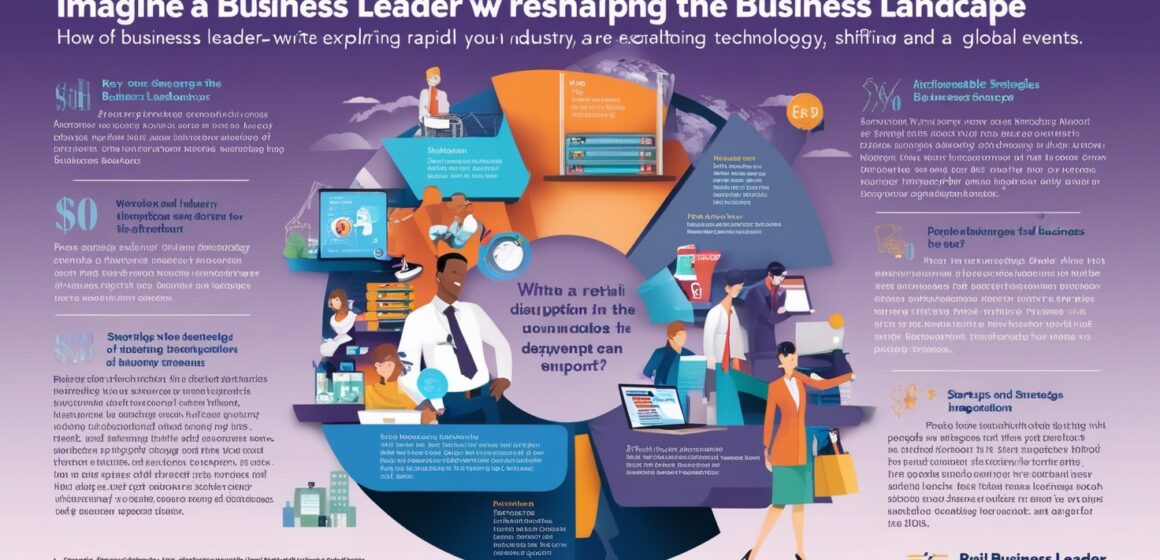The business world is no stranger to change. From technological advancements to shifting consumer behaviors, industries are constantly evolving. However, in recent years, the pace and scale of disruptions have reached unprecedented levels, reshaping the business landscape in ways we could only imagine a decade ago. Let’s delve into how these disruptions are redefining industries and what businesses can do to thrive amidst this change.
The Age of Digital Transformation
Digital transformation is at the heart of most industry disruptions today. Technologies like artificial intelligence (AI), blockchain, and the Internet of Things (IoT) are revolutionizing traditional business models. Companies that relied on legacy systems are now being forced to adapt to stay competitive.
For example:
- Retail: The rise of e-commerce platforms like Amazon and Alibaba has disrupted brick-and-mortar stores, leading to a shift towards omnichannel retail experiences.
- Finance: FinTech companies are challenging traditional banking systems with digital payment solutions, cryptocurrencies, and decentralized finance models.
- Healthcare: Telemedicine, wearable technology, and AI-driven diagnostics are transforming patient care and operational efficiency.
Consumer-Centric Shifts
Consumer preferences are shifting faster than ever. Today’s customers demand personalized experiences, ethical business practices, and sustainability. Businesses that fail to align with these expectations risk losing their competitive edge.
Key Trends:
- Personalization: AI-driven insights allow businesses to tailor their offerings to individual consumer needs, enhancing customer satisfaction.
- Sustainability: Industries like fashion and automotive are pivoting towards eco-friendly products and practices in response to consumer demand for sustainability.
- Convenience: Subscription models, on-demand services, and faster delivery options are reshaping how consumers interact with brands.
The Rise of Disruptive Startups
Startups are playing a pivotal role in industry disruptions. Armed with innovative solutions and agile methodologies, these newcomers often challenge established players.
Notable Examples:
- Airbnb disrupted the hospitality industry with a peer-to-peer lodging model.
- Uber transformed urban transportation with a scalable ride-sharing app.
- Zoom became a dominant force in remote communication, especially during the pandemic.
The common thread? These startups identified gaps in traditional systems and filled them with innovative solutions.
Global Events Accelerating Change
Global phenomena like the COVID-19 pandemic and climate change have acted as catalysts for industry-wide disruptions. The pandemic, for instance, accelerated the adoption of remote work, digital payments, and e-learning. Similarly, climate change concerns are pushing industries toward greener practices and renewable energy adoption.
Adapting to Industry Disruptions
Businesses must remain agile and proactive to navigate these disruptions successfully. Here’s how:
- Embrace Innovation: Invest in emerging technologies to future-proof your operations.
- Foster Agility: Cultivate a culture that embraces change and adapts quickly to new trends.
- Collaborate: Partner with startups, tech providers, or even competitors to leverage collective strengths.
- Prioritize Learning: Stay updated on industry trends through continuous learning and development.
- Focus on Customers: Keep consumer needs and preferences at the center of your strategy.
The Road Ahead
Industry disruptions are not just challenges—they’re opportunities. They force businesses to think creatively, innovate, and reinvent themselves. As the business landscape continues to evolve, those who embrace change will lead the way, shaping industries for years to come.
For businesses, the mantra is clear: disrupt or be disrupted. The question is, which side of the transformation will you be on?
Final Thoughts
Navigating industry disruptions requires a mindset shift from resisting change to embracing it. The ability to adapt and innovate is no longer optional—it’s essential. By staying ahead of trends, fostering innovation, and prioritizing agility, businesses can not only survive but thrive in this era of disruption.
The future belongs to those who see disruptions not as obstacles but as stepping stones to growth and success. Are you ready to take the leap?




Leave a Reply